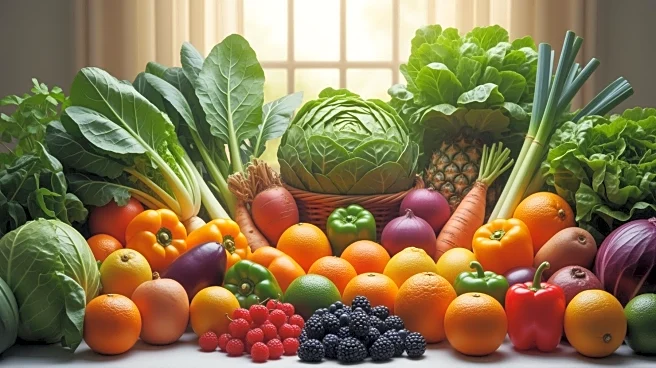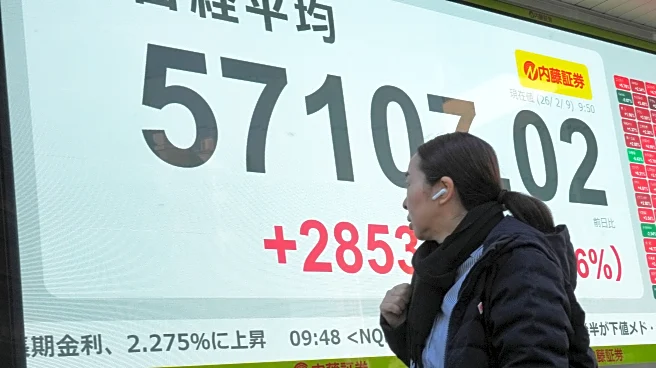What's Happening?
The Business 20, a G20 engagement group, has endorsed three key principles aimed at building sustainable food systems and agriculture: increased trade, resilient supply chains, and sustainable agricultural practices. Agricultural economist Wandile Sihlobo
highlights how these principles can be effectively utilized by African countries to improve food security. The focus is on enhancing global food security by addressing challenges related to access, nutrition, sustainability, and affordability. The G20's approach emphasizes the importance of easing trade friction, removing tariffs, and ensuring smooth agricultural product flows. This strategy is crucial for countries unable to produce sufficient food domestically, allowing them to import food affordably. The initiative also calls for the removal of export bans, such as India's 2023 rice export ban, which led to a surge in global food prices.
Why It's Important?
The G20's focus on trade and sustainable farming practices is significant for global food security, particularly in regions like Africa, the Middle East, and Asia, where poverty and food insecurity are prevalent. By reducing trade barriers and promoting sustainable agricultural practices, the G20 aims to lower transaction costs and improve food accessibility. This approach could lead to improved living standards, especially in poorer regions. The emphasis on climate-smart farming and trade reform is crucial for Africa, which is vulnerable to climate-related disasters. By enhancing access to fertilizers and improving trade systems, African countries can boost agricultural productivity and reduce food insecurity. The G20's role in promoting these principles is vital for achieving a more food-secure world.
What's Next?
African nations, particularly South Africa and the African Union, are encouraged to implement policies that align with the G20's principles. This includes adopting climate-smart agricultural practices, reforming trade systems, and improving access to fertilizers. The G20's support for local fertilizer production could mitigate global price shocks and make fertilizers more affordable for vulnerable countries. The focus on technology and optimal use of agricultural inputs is expected to enhance food production while minimizing environmental impact. The G20's continued advocacy for open trade and sustainable farming practices is likely to influence global agricultural policies and contribute to long-term food security improvements.
Beyond the Headlines
The G20's initiative highlights the balance between efficient agricultural production and reducing agriculture's environmental impact. The use of technology and high-yield seed cultivars is emphasized as a means to adapt to climate change without expanding agricultural land, which could harm the environment. The G20's approach underscores the importance of safe and optimal use of agricultural inputs to increase food production sustainably. This initiative could lead to a shift in global agricultural practices, promoting a more sustainable and food-secure future.


















